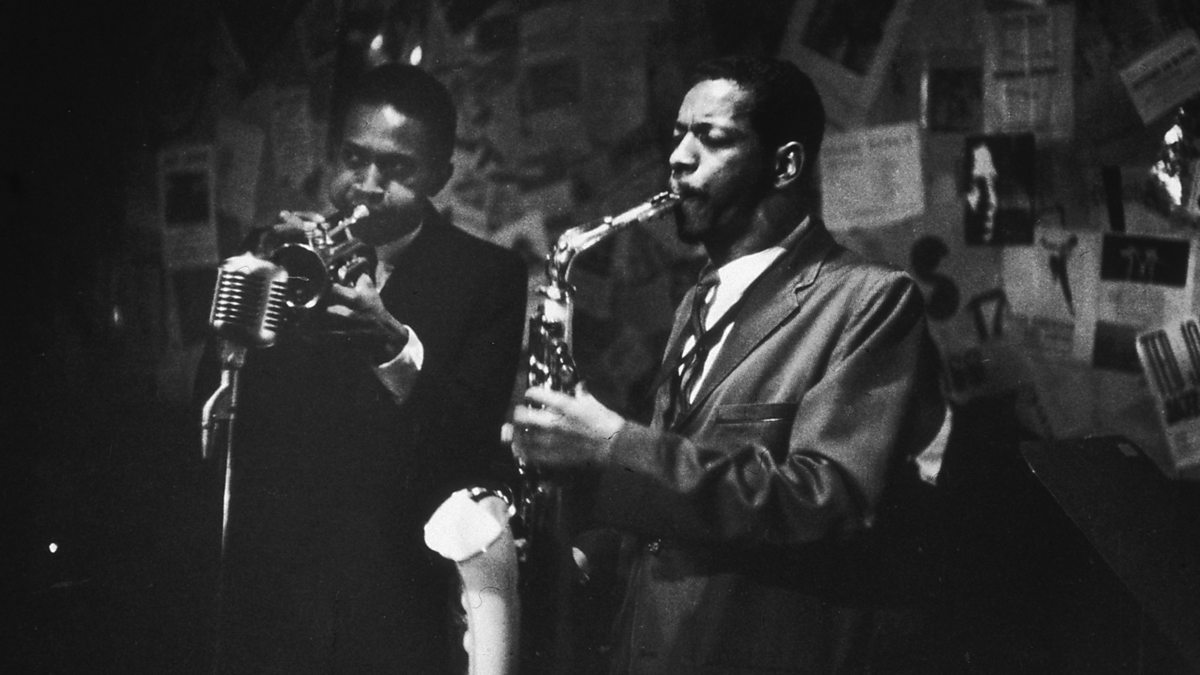Sat 17 Sept
4.00 Jazz Record Requests
Alyn Shipton introduces another selection of listeners' requests, today featuring the classic 1937 recording of The Prisoner's Song by trumpeter Bunny Berigan and his Orchestra.
Never heard of it.....
5.00 Jazz Line-Up
Claire Martin presents a performance by genre-straddling jazz trio Mammal Hands. Plus she introduces a profile on jazz and nature, featuring Norwegian musician Karl Seglem, whose music combines the sound of saxophone, electronics and goat horn.
12.00 Geoffrey Smith's Jazz
Geoffrey Smith explores the many varied styles of what was known as West Coast jazz in the 1950s. Recognised as light, bright and witty, this distinctive sub-genre also boasted a more impactful, intense side, as demonstrated by artists including Stan Kenton, Gerry Mulligan, Art Pepper and Ornette Coleman
Mon 19 Sept
11.00 Jazz Now
Soweto Kinch presents highlights of concert performances by three contrasting pianists and their groups Aaron Diehl, Kevin Hays and Nick Bartsch [with unlaut], recorded in April at this year's Jazzahead event in Bremen, Germany
Not forgetting Moira Stuart on Sunday on R2 at 11.00 pm, while for guitar buffs drawing attention to Jools Holland at 11.00 on Monday, where Chris Spedding gets us listening to some of his fave recordings - same time, Radio 2. Spedding was with Ian Carr's Nucleus and the Mike Gibbs Big Band ar the turn of the 1970s, before slipping away from the scene and joining forces with Rod [no longer] the Mod, if my memory serves me correctly.
4.00 Jazz Record Requests
Alyn Shipton introduces another selection of listeners' requests, today featuring the classic 1937 recording of The Prisoner's Song by trumpeter Bunny Berigan and his Orchestra.
Never heard of it.....
5.00 Jazz Line-Up
Claire Martin presents a performance by genre-straddling jazz trio Mammal Hands. Plus she introduces a profile on jazz and nature, featuring Norwegian musician Karl Seglem, whose music combines the sound of saxophone, electronics and goat horn.
12.00 Geoffrey Smith's Jazz
Geoffrey Smith explores the many varied styles of what was known as West Coast jazz in the 1950s. Recognised as light, bright and witty, this distinctive sub-genre also boasted a more impactful, intense side, as demonstrated by artists including Stan Kenton, Gerry Mulligan, Art Pepper and Ornette Coleman
Mon 19 Sept
11.00 Jazz Now
Soweto Kinch presents highlights of concert performances by three contrasting pianists and their groups Aaron Diehl, Kevin Hays and Nick Bartsch [with unlaut], recorded in April at this year's Jazzahead event in Bremen, Germany
Not forgetting Moira Stuart on Sunday on R2 at 11.00 pm, while for guitar buffs drawing attention to Jools Holland at 11.00 on Monday, where Chris Spedding gets us listening to some of his fave recordings - same time, Radio 2. Spedding was with Ian Carr's Nucleus and the Mike Gibbs Big Band ar the turn of the 1970s, before slipping away from the scene and joining forces with Rod [no longer] the Mod, if my memory serves me correctly.





Comment